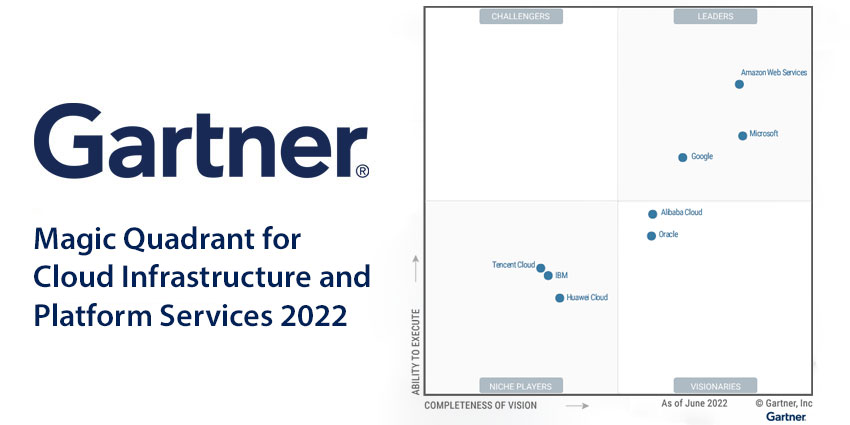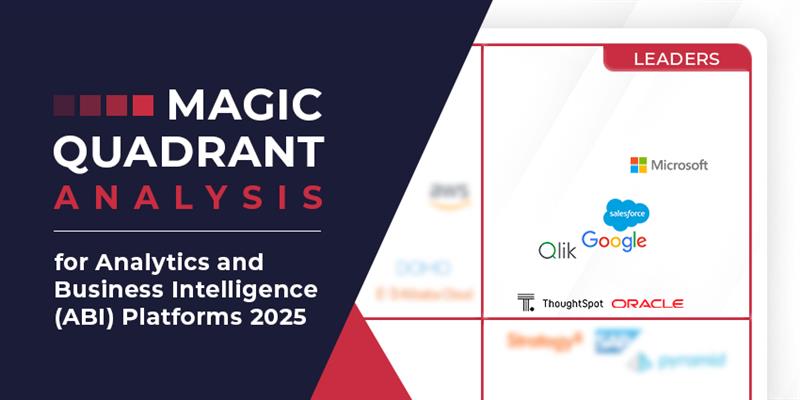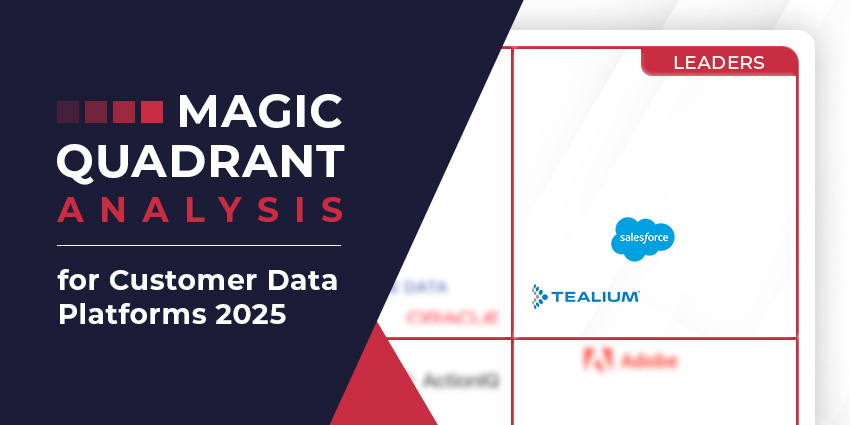Gartner has released its 2022 Magic Quadrant for Cloud Infrastructure and Platform services.
According to the analyst, today’s infrastructure and operations (I&O) professionals are dealing with a environments growing in complexity, encompassing an array evolving cloud providers.
At the same time, these organizations are facing rising inflation, growing competition for cloud talent, and evolving regulatory mandates.
As such, this Magic Quadrant aims to assist companies in negating these issues by presenting and assessing the available cloud providers they can leverage for transformation support.
This year’s report features eight companies, with three market leaders.
Defining Cloud Infrastructure and Platform Services
Providers of Cloud Infrastructure and Platform Services (CIPS) offer access to infrastructure computing, networking, and storage resources – alongside various complementary services, such as managed applications, database, and as-a-service solutions.
For a vendor to be included in the CIPS Magic Quadrant, they must offer scalable, elastic resources, delivered in near real-time, with metered usage. Self-service interfaces like web-based UIs and API solutions should also be directly available to customers.
Gartner notes CIPS resources may be single or multi-tenant, and could be hosted by a service provider or in the customer’s data centre as an on-premises solution.
The scope of the Magic Quadrant for CIPS looks at integrated IaaS offerings and PaaS tools. The latter includes application PaaS, functions as a service, and database PaaS, alongside application developer PaaS and industrialized cloud offerings.
Gartner typically divides its list of notable vendors in the CIPS space into 4 segments: Leaders, Challengers, Visionaries, and Niche Player. However, in this year’s report, there are no Challengers listed.
Here, we’ll review each entrant on the 2022 Magic Quadrant.

Leaders
Leaders in the CIPS space distinguish themselves with a service that combines strategic adoption with an ambitious roadmap. These solutions serve a broad range of use cases, though they may not excel in all areas. Leaders in the market do, however, have a significant market share, and a sizeable base of reputable customers. This year’s leaders for the CIPS Magic Quadrant include:
- Amazon Web Services
- Microsoft
Amazon Web Services
AWS is considered to have the greatest breadth and depth of capabilities of any provider in the market, and has helped to set accepted standards in the space. The vendor also boasts the current market-share lead in the environment, exceeding both Microsoft by two times. The company’s prosperous and vibrant ecosystem is also a magnet for partners, which helps to generate greater market share. However, Gartner does note that AWS tends to optimize for the short-term when dealing with customers, which can lead to less brand loyalty.
Microsoft
According to Gartner, the solution is closing the gap in market share with AWS. Its solutions-oriented ecosystem seems a significant reasons for this, demonstrating broad range of cloud capabilities and ecosystem partners to address different use cases. Microsoft also benefits from a hybrid and multicloud environment, with the Azure Arc technology environment. Despite its excellent growth, however, Gartner suggests that Microsoft is still suffering from a handful of security issues, and lack of innovation.
Google’s GCP (Google Cloud Platform) has made significant progress in improving its edge abilities this year, and has achieved the highest percentage of revenue gains and improvements across the Critical Capabilities portfolio defined by Gartner. Google has also recently updated its sales execution strategy, to help boost revenue, and is willing to partner with in-country operators to create sovereign cloud alternatives. However, Gartner also notes that Google has suffered from some market confusion problems, and has struggled with financial losses.
Visionaries
Visionaries in the Gartner Magic Quadrant for CIPS are companies with an ambitious vision of the future, and a strong investment in the development of unique technologies. The services of these companies are still emerging, and some solutions may not be generally available. Visionaries may also fail to serve the broadest range of use cases or have a limited geographic scope. This year’s Magic Quadrant Visionaries are:
- Alibaba Cloud
- Oracle
Alibaba Cloud
Alibaba Cloud is s a good fit for cloud-first digital business workloads, specifically for companies based in Southeast Asia and China. The company also has a rich selection of ISV partnerships and ERP provider partnerships to leverage. The company even offers an integration accelerator program. Plus, Alibaba’s big data and analytics capabilities make it a fantastic partner for business transformation. On the other hand, Alibaba’s success rate has been influenced by the perception of influence from the Chinese authorities. Another challenge facing the brand is a lack of excellent transparency and consistent, predictable pricing.
Oracle
Moving from a Niche Player to a Visionary, Oracle benefits from fantastic business model innovation, helping its customers respond to emerging enterprise needs like the demand for sovereign clouds. Oracle is also building a multicloud environment, while leveraging its heritage in mission-critical data warehousing and database solutions. Nonetheless, Gartner notes Oracle does have a negative brand association for many organizations, caused by inconsistent sales and support, and tough compliance enforcement.
Niche Players
The Niche Players in the Gartner Magic Quadrant for Cloud Infrastructure and Platform Services are specifically well-suited to particular use cases and regions. However, they should be ultimately viewed as specialist providers, which don’t serve the broadest range of use cases. Some may also have siloed leadership positions in markets adjacent to this space. This year’s niche players include:
- Tencent Cloud
- IBM
- Huawei Cloud
Tencent Cloud
Tencent Cloud benefits from a combination of IaaS solutions optimized for high-performance networking, and scale-out application architecture. This makes Tencent more attractive to customers with specific workload requirements. The company offers a zero-commitment free trial of all services, as well as solutions for customer internet and low-code development. However, according to Gartner, Tencent may not be well-suited to committing large enterprise customers with general purpose IT workloads.
IBM
IBM’s cloud operations benefit from a highly-focused strategy for regulated industries. The company has a distinctive solution for the financial services industry, and has recently developed innovative retail solutions for brands. IBM also has a differentiated vision to assist with modernizing enterprise workloads, such as those running on IBM power systems. Unfortunately, IBM has also suffered from a number of major incidents which have led to widespread service disruptions.
Huawei Cloud
Though its operations are focused mainly on China, Huawei is developing a broader global market focus. The vendor offers phenomenal on-premises and edge computing expertise. The company’s enterprise pedigree gives it an edge over the competition, alongside it’s extensive knowledge of the telecommunications space. Nevertheless, Gartner does note Huawei cloud is experiencing a few significant challenges, with international sanctions influencing the company’s overall revenue, making the success of the brand difficult to gauge.
Looking Ahead to the Future of CIPS
As demand for digital transformation and cloud innovation grows, the need for effective cloud infrastructure and platform services providers will accelerate.
Going forward, it is likely that more companies will embrace cloud solutions to help ensure continued agility and resiliency in an unpredictable business landscape.
Moreover, Gartner notes the CIPS market is changing in significant ways which have long-lasting ramifications for enterprise IT.
As such, companies competing in the CIPS space must adapt to the transforming needs of companies, regarding concepts like multi-cloud and sovereign cloud solutions.
To uncover more insights from Gartner into various other enterprise technologies, read our rundowns of the:
- Gartner Magic Quadrant for Cloud ERP for Product-Centric Enterprises 2022
- Gartner Magic Quadrant for Data and Analytics Service Providers 2022
- Gartner Magic Quadrant for Enterprise Agile Planning Tools 2022







